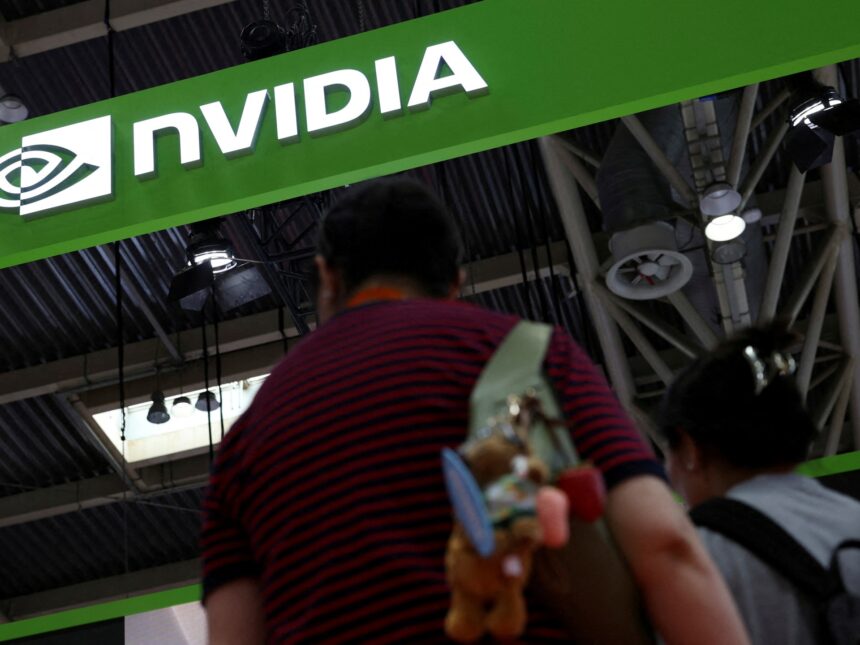In a significant development affecting the global technology landscape, China has imposed a ban on its leading tech firms from purchasing chips from Nvidia. This move is seen as part of the country’s strategy to bolster its domestic manufacturing sector. As per reports from the Financial Times, the Cyberspace Administration of China (CAC) instructed major corporations, including ByteDance and Alibaba, to cease testing the RTX Pro 6000D AI chip designed specifically for the Chinese market.
Nvidia’s CEO, Jensen Huang, expressed disappointment over the regulatory decision during a recent news conference in London. “We will continue to be supportive of the Chinese government and Chinese companies as they wish,” he stated, highlighting the company’s commitment to navigating the complex dynamics in the region. Several firms had initially expressed interest in ordering large quantities of the RTX Pro 6000D chips and were engaged in testing processes with Nvidia’s server suppliers. However, demand for the chip in China appears to be limited, with major tech players opting out of incorporating it into their products, according to a recent report by Reuters.
In response to the ban, Nvidia’s stock has experienced a downturn, reflecting concerns over its prospects in one of the world’s largest cloud computing markets. As of 11:30 a.m. in New York (15:30 GMT), the stock had decreased by 2.6 percent.
The timing of the ban coincides with escalating tensions between the U.S. and China, especially following the Chinese government’s accusation that Nvidia violated its antimonopoly laws concerning the earlier H20 chip. This regulatory pressure comes amid ongoing trade negotiations between the two nations, which recently concluded in Madrid. The U.S. administration has consistently restricted China’s access to advanced semiconductor technology, prompting a push from Beijing for its domestic firms to distance themselves from American suppliers.
Huang is currently in London for an official state visit by U.S. President Donald Trump, during which he is expected to discuss these developments. Nvidia is poised to provide processor chips for the UK branch of Stargate, an AI infrastructure initiative backed by Trump. Huang noted, “I’ll see him tonight, and he’ll probably ask me,” when asked about potential discussions with Trump regarding the recent ban.
As the U.S. and China continue to grapple with complex geopolitical dynamics, Huang emphasized Nvidia’s role in promoting collaboration between both nations as they navigate these challenges.






